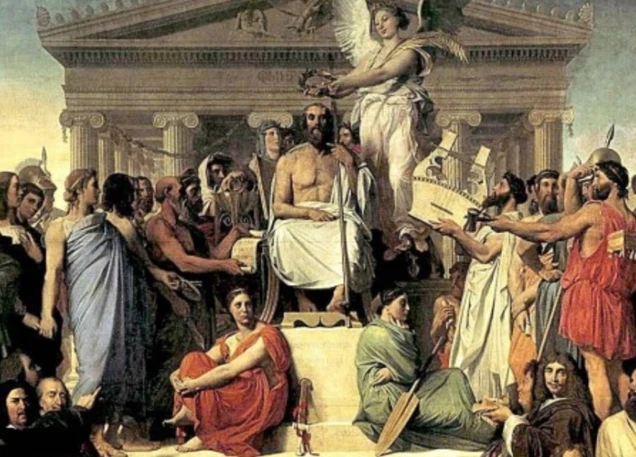Unraveling the Origins of Greek Mythology: A Historical Perspective
As we delve into the fascinating depths of Greek mythology, we find ourselves immersed in a tapestry of ancient stories that have captivated the imagination of countless generations. But where did these captivating tales originate? How did they come to shape the beliefs and culture of the ancient Greek civilization? In this exploration, we embark on a historical journey, tracing the roots of Greek mythology and shedding light on its role in shaping the ancient world. From the emergence of the ancient Greek civilization to the mythical heroes and gods that adorned their tales, we uncover the mysteries and intricacies that have made Greek mythology a timeless treasure.
The Ancient Greek Civilization
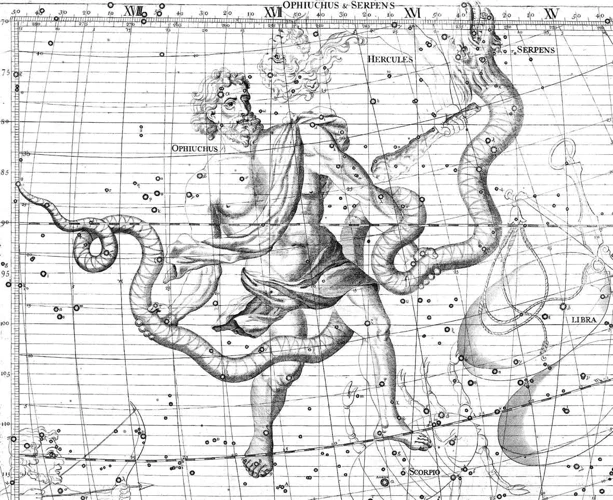
The Ancient Greek Civilization
The ancient Greek civilization, an enigmatic and influential period in human history, flourished from around the 8th century BCE to the 6th century CE. Known for its remarkable advancements in philosophy, art, politics, and literature, the Greeks have left an indelible mark on the world. This civilization, comprised of city-states like Athens and Sparta, thrived on the ideas of democracy, citizenship, and intellectual pursuits. It is within the context of this vibrant society that Greek mythology took root and flourished, becoming an integral part of their culture. Greek mythology, with its pantheon of gods and goddesses, and its tales of heroic feats and epic battles, reflected not only the beliefs of the ancient Greeks, but also their values and aspirations. The myths served as a way to understand the mysteries of the world, to explain natural phenomena, and to explore the complexities of the human psyche. They provided a framework for understanding the world and a guide for ethical behavior. To truly appreciate Greek mythology, it is essential to understand the context in which it emerged – the ancient Greek civilization that birthed and nurtured it.
The Birth of Greek Mythology
The Birth of Greek Mythology
The birth of Greek mythology can be traced back to the ancient oral traditions and storytelling practices of the early Greek civilization. These stories, passed down from generation to generation, laid the foundation for the rich and elaborate mythological narratives that would eventually emerge. At its core, Greek mythology was an attempt to make sense of the world and the human experience. It provided explanations for natural phenomena, such as the changing of seasons or the origins of life. The gods and goddesses, with their magnificent powers and human-like flaws, became the central figures in these myths. They represented the forces of nature and the complexities of human emotions and behaviors. The birth of Greek mythology also coincided with the rise of the city-states and the establishment of religious cults dedicated to specific gods and goddesses. These cults played a significant role in the development and dissemination of mythological stories. Through rituals, festivals, and sacrifices, the ancient Greeks sought to honor and appease the gods, reinforcing their belief in the mythological narratives. As Greek culture expanded and interacted with other civilizations, such as the Egyptians and the Persians, new elements and influences were incorporated into Greek mythology, further enriching its tapestry. The birth of Greek mythology marked the beginning of a legacy that would endure for centuries, captivating minds and inspiring countless works of art, literature, and entertainment.
Link: Charming World of Greek Myth Creatures
Role of Mythology in Ancient Greece
Role of Mythology in Ancient Greece
The role of mythology in ancient Greece was multifaceted and permeated every aspect of society. Mythology provided the Greeks with a rich tapestry of stories that reflected their beliefs, values, and traditions. These myths served as a cultural backbone, reinforcing societal norms and providing moral guidance. They offered explanations for the mysteries of the natural world, the origins of humanity, and the workings of the gods and goddesses who governed their lives. Mythology also played a crucial role in religious practices, with rituals and sacrifices dedicated to the gods and goddesses at the center of Greek religious life. Additionally, myths provided a source of entertainment and education, with epic poems and heroic tales recounting the adventures of legendary figures like Hercules and Perseus. These stories inspired and captivated audiences, instilling a sense of heroism, bravery, and honor. Through the lens of mythology, the ancient Greeks interpreted the world around them, seeking to make sense of their existence and find their place within the grand scheme of things. To truly understand the ancient Greek civilization, one must explore the vast and captivating realm of Greek mythology.
Reference: For a deeper understanding of the heroic tales within Greek mythology, you can explore Greek Mythology Heroic Tales and discover the thrilling adventures of legendary heroes like Hercules and Perseus.
Historical Context
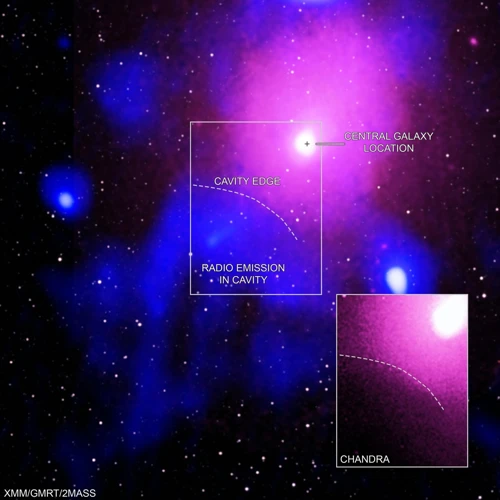
Historical Context
To unravel the origins of Greek mythology, we must explore the historical context in which it developed. Before the Greeks, there were other civilizations and cultures that influenced and shaped their myths. The ancient Greeks borrowed ideas and myths from their predecessors, such as the Egyptians and Mesopotamians, adapting and reinterpreting them to fit their own cultural framework. Additionally, the Minoan and Mycenaean cultures, which thrived on the islands of Crete and mainland Greece respectively, played a significant role in laying the foundation for Greek mythology. The discovery of ancient palaces, artwork, and writings from these civilizations has provided valuable insights into the early beliefs and practices that would later become integral to Greek mythology. As we delve into the historical context, we uncover the connections and influences that paved the way for the rich tapestry of Greek myths to unfold, revealing a remarkable interplay between cultures and a vibrant tapestry of stories that continue to captivate our imagination to this day. For a deeper understanding of the historical context, you can explore the realm of Hades and the gods in Greek mythology, delving into the underworld and its significance in the Greek cosmology.
Pre-Greek Mythology: Influences and Borrowings
Pre-Greek Mythology: Influences and Borrowings
To understand the origins of Greek mythology, we must first explore the influences and borrowings that shaped its development. Greek mythology did not emerge in isolation; it was influenced by earlier civilizations and their mythological beliefs. One significant source of influence was the ancient Mesopotamian civilization, particularly the myths and stories of the Sumerians and Babylonians. These cultures shared common themes, such as the creation of the world and the existence of gods and goddesses who controlled various aspects of human life. The Epic of Gilgamesh, a Mesopotamian tale about a heroic king seeking immortality, showcased parallels to later Greek hero stories. Another important source of influence was the ancient Egyptian civilization, which the Greeks had direct contact with through trade and cultural exchange. Egyptian mythological concepts, such as the afterlife and the worship of animal-headed deities, found their way into the Greek pantheon. Additionally, the ancient Hittite civilization, with its powerful gods and epic stories, contributed to the rich tapestry of Greek mythology. These influences and borrowings from neighboring civilizations laid the groundwork for the development of Greek mythology as we know it today. To explore more about Greek mythology, particularly the realm of Hades and the gods of the underworld, refer to “Exploring the Underworld in Greek Mythology: The Realm of Hades and the Gods“.
The Minoan and Mycenaean Cultures
The Minoan and Mycenaean Cultures
The Minoan and Mycenaean cultures played a significant role in the development and evolution of Greek mythology. The Minoans, centered on the island of Crete during the Bronze Age, were renowned for their advanced civilization and sophisticated artistic expression. Their religious beliefs and practices often revolved around nature and female deities, such as the snake goddess. The Minoans also had a mythological figure known as the Minotaur, a half-human, half-bull creature that was housed in the labyrinth of Knossos.
On the mainland, the Mycenaeans emerged as a dominant culture following the decline of the Minoans. They were heavily influenced by the Minoans, adopting certain aspects of their religious and cultural practices. The Mycenaeans worshiped a pantheon of gods similar to those seen in later Greek mythology, including Zeus and Poseidon. They also had their own unique heroes and legends, such as Agamemnon, the legendary king of Mycenae who played a central role in the Trojan War.
The influence of the Minoan and Mycenaean cultures on Greek mythology is evident in the later tales and deities that emerged in ancient Greece. Many of the gods and goddesses revered by the ancient Greeks can be traced back to these earlier civilizations. The Minoan and Mycenaean cultures laid the groundwork for the rich tapestry of Greek mythology, establishing themes and symbols that would endure for centuries to come. Exploring the remnants of their civilizations, including the ancient ruins and artifacts, allows us to unravel the intricate origins of Greek mythology and gain a deeper understanding of its cultural significance.
The Dark Age and Emergence
During the Dark Age of Greece, which spanned from around the 12th century BCE to the 9th century BCE, much of the culture and knowledge of the ancient Greeks was lost. This period was marked by a decline in population, trade, and the arts. However, it was also a time of transformation and cultural rebirth. As the Dark Age began to give way to a new era, known as the Archaic Period, the Greek city-states began to emerge and flourish once again. This period witnessed a revival of trade, the development of new agricultural techniques, and the establishment of colonies along the Mediterranean coast. With the rise of city-states like Athens and Sparta, a new social and political order emerged, where kings and chiefs were replaced by aristocrats and oligarchies. It was during this time that the foundations of Greek mythology were laid, as the Greeks sought to make sense of their world and understand their place within it. The tales of gods, heroes, and monsters began to take shape, reflecting the values, fears, and aspirations of the ancient Greeks. The emergence of new city-states and the revitalization of Greek society paved the way for the Golden Age of Greece, a period of unprecedented cultural and intellectual accomplishments that would solidify Greek mythology as an enduring legacy.
Key Deities and Heroes
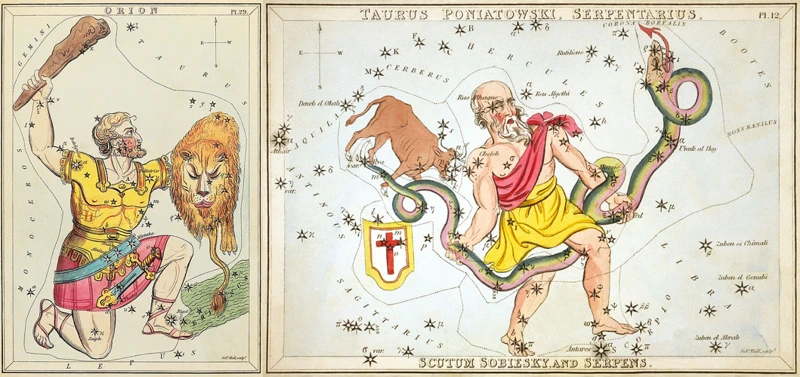
Key Deities and Heroes
Within the vast pantheon of Greek mythology, there are numerous deities and heroes who play pivotal roles in the rich tapestry of ancient tales. Among the most prominent are the Olympian gods and goddesses, a powerful and influential group who resided on Mount Olympus. From Zeus, the king of the gods, to Athena, the goddess of wisdom and war, each deity possessed unique attributes and wielded great power over various aspects of human life. These gods and goddesses served as both protectors and provocateurs, shaping the destinies of mortals and immortals alike. Alongside the divine figures, Greek mythology is also rife with tales of heroes who embody the ideals and gallantry of the ancient Greeks. From the mighty Heracles, known for his incredible strength and his remarkable twelve labors, to Perseus, the slayer of Medusa, and Theseus, the hero of Athens, these figures undertook incredible quests, battled fearsome monsters, and ultimately emerged as symbols of valor and virtue. The stories of these deities and heroes not only entertained the ancient Greeks but also conveyed important moral lessons and provided models of behavior for generations to come. It is through the exploration of these key figures in Greek mythology that we uncover the multifaceted nature of their beliefs and aspirations, and gain a deeper understanding of the ancient world they inhabited.
Olympian Gods and Goddesses
Olympian Gods and Goddesses
The Olympian gods and goddesses, also known as the Twelve Olympians, held a prominent place in Greek mythology. These powerful and immortal beings resided on Mount Olympus, the highest mountain in Greece, and ruled over various aspects of human life and the natural world. At the head of the Olympian pantheon was Zeus, the king of gods, who symbolized power, thunder, and the sky. His siblings included Hera, the queen of gods and the goddess of marriage and childbirth; Poseidon, the god of the sea; Hades, the ruler of the underworld; and Demeter, the goddess of agriculture. Hestia, the goddess of the hearth, was one of the few Olympians who did not play a prominent role in myths. Other notable Olympians included Apollo, the god of light, music, and healing; Artemis, the goddess of the hunt and the moon; Athena, the goddess of wisdom and warfare; Ares, the god of war; Aphrodite, the goddess of love and beauty; Hermes, the god of travel and messenger of the gods; Dionysus, the god of wine and celebration; and Hephaestus, the god of fire and craftsmanship. These gods and goddesses, with their distinctive domains and personalities, were essential in shaping Greek mythology and influencing the lives of mortals. Their intriguing myths and complex relationships continue to captivate our imagination, offering a glimpse into the ancient Greek world and its rich mythological tapestry.
Heroes and Their Legends
Heroes played a significant role in Greek mythology, embodying the ideals and virtues admired by the ancient Greeks. These legendary figures possessed extraordinary abilities and embarked on daring quests that captured the collective imagination of their society. Here are some prominent heroes and their captivating legends:
- Heracles: Known for his incredible strength, Heracles, also known as Hercules, undertook twelve labors as penance for the murder of his wife and children. These tasks included slaying the Nemean Lion, capturing the Golden Hind, and stealing the apples of the Hesperides.
- Perseus: Perseus, armed with his trusty sword and a polished shield as he fought against Medusa, the terrifying Gorgon with snakes for hair. With the help of the gods, Perseus slew Medusa and turned her into stone.
- Theseus: Theseus, the hero of Athens, successfully navigated a labyrinth designed by the cunning Daedalus and defeated the fearsome Minotaur, a monstrous half-human, half-bull creature. Theseus exemplified bravery and noble leadership.
These heroes became legends, their tales passed down through generations as cautionary tales, sources of inspiration, and symbols of heroism. Their extraordinary feats and moral character serve as timeless examples of the virtues and trials faced by humanity throughout history. By understanding the stories surrounding these heroes, we gain insight into the values and aspirations of the ancient Greeks and the significance of heroism in their culture.
Creation Stories
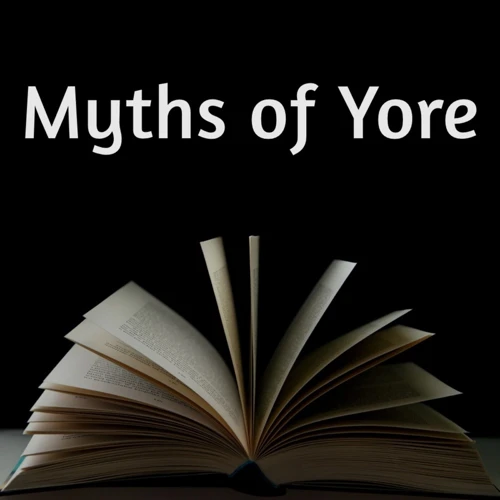
Creation Stories
Within the vast tapestry of Greek mythology, the creation stories hold a special place of intrigue and wonder. These tales, passed down through generations, offer insights into the ancient Greeks’ beliefs about the origins of the universe. The most prominent creation myth is found in Hesiod’s Theogony, which recounts the birth of the gods and the establishment of their divine hierarchy. According to this myth, Chaos, the void of nothingness, was the beginning of everything. From Chaos emerged the first deities, including Gaia (Earth), Tartarus (the Underworld), and Eros (Love). Through a complex web of divine lineage and intricate relationships, the gods and goddesses of Mount Olympus came into existence. In addition to the Theogony, there are other creation myths that explore alternative explanations for the origins of the cosmos. These stories, such as the cosmogony of Orpheus and the Orphic tradition, present different perspectives on how the world came to be. Whether through the interplay of primordial forces or the actions of powerful deities, these creation stories provide a foundation for the rich and elaborate world of Greek mythology. They offer glimpses into the ancient Greeks’ understanding of the cosmos and their place within it, inviting us to ponder the mysteries of our own existence.
Theogony: The Birth of the Gods
Theogony, the ancient Greek epic poem attributed to Hesiod, delves into the intricate tale of the birth of the gods and the creation of the universe. This renowned piece of literature serves as a significant source for understanding the origin of the Greek pantheon. According to Theogony, in the beginning, there was Chaos, a shapeless void from which everything was born. From Chaos emerged Gaia (Earth), Tartarus (the Underworld), and Eros (Love). Gaia then gave birth to Uranus (the Heavens), who became her partner and father of the Titans, the Cyclopes, and the Hecatoncheires. Uranus, fearful of his children’s power, imprisoned them within Gaia. Enraged, Gaia conspired with her son Cronus to castrate Uranus, thus overthrowing him. Cronus became the ruler of the cosmos, only to be eventually overthrown by his own son, Zeus. Zeus, known as the supreme ruler of the gods, brought order and stability to the universe. Theogony offers a mesmerizing and complex account of the genealogy and hierarchy of the divine beings, shedding light on the power struggles, alliances, and triumphs that shaped the Greek pantheon.
Note: There is no relevant anchor text to provide an internal link in this section.
Other Creation Myths
The realm of Greek mythology is not limited to a single creation story. While the most well-known creation myth is found in Hesiod’s Theogony, there are other accounts that offer alternate explanations for the origin of the world and the gods. One such myth is the Orphic creation myth. According to this narrative, the world began with the primal god Chronos (Time) and the goddess Ananke (Necessity). From their union, the egg of the cosmos was formed, giving birth to the first beings, Phanes and Nyx. Another intriguing creation myth is the one associated with the god Dionysus. In this version, Dionysus is depicted as a primordial deity who embodies the duality of life and death. It is believed that Dionysus was born from the union of Zeus and Persephone, the queen of the underworld. This unique creation myth emphasizes the cyclical nature of life, with Dionysus representing the eternal cycle of growth, decay, and rebirth. These alternative creation myths showcase the diversity and richness of Greek mythology, providing different interpretations and perspectives on the origins of the world and the deities that inhabit it.
The Trojan War
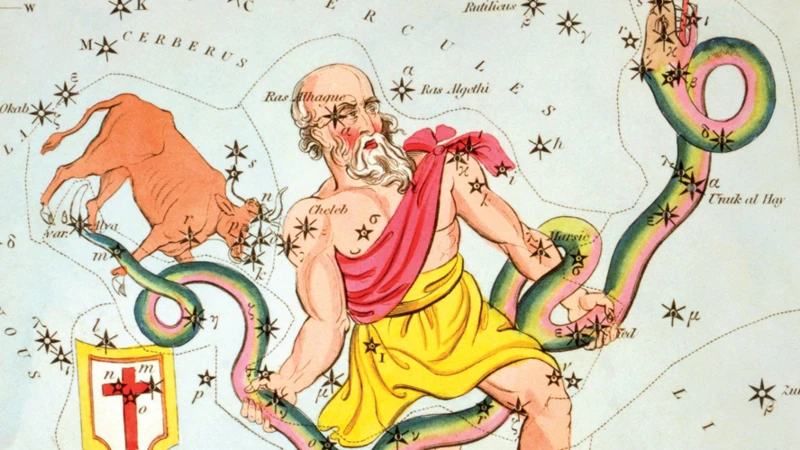
The Trojan War
The Trojan War is a legendary conflict that has captured the imagination of people for centuries. According to Greek mythology, the war was waged between the Greeks and the Trojans, sparked by the abduction of Helen, the wife of Menelaus, by Paris, a prince of Troy. This epic narrative has been the subject of numerous works of art, literature, and theater. While the existence of an actual historical event behind the myth is debated by scholars, archaeological evidence suggests that there was indeed a city of Troy and that it experienced periods of destruction and rebuilding. The mythology surrounding the war, as depicted in Homer’s Iliad and other ancient texts, portrays the bravery and heroism of warriors like Achilles, Odysseus, and Hector, while also delving into complex themes such as fate, honor, and the consequences of war. Whether based on historical reality or not, the story of the Trojan War holds a timeless allure, serving as a symbol of the power of storytelling and the enduring nature of myth.
Historical Basis for the Trojan War
The historical basis for the Trojan War has long been a subject of fascination and debate among scholars and historians. While the Trojan War is primarily known through Greek mythology and epic poetry, there is evidence to suggest that it may have been rooted in historical events. The legendary conflict between the Greeks and the Trojans is believed to have taken place around the late Bronze Age, between the 13th and 12th centuries BCE. One of the key pieces of evidence comes from archaeological excavations conducted at the site of Troy in modern-day Turkey. These excavations, led by Heinrich Schliemann in the late 19th century, revealed the remains of a city that closely match the descriptions of Troy in ancient texts. The city showed signs of being destroyed and rebuilt multiple times, suggesting a history of conflict. Additionally, the discovery of ancient weapons and the presence of a defensive wall at the site further support the idea of a war taking place. It is important to note, however, that the events described in Greek mythology may have been embellished and distorted over time, blurring the lines between historical fact and mythical embellishments. Nonetheless, the historical basis for the Trojan War provides a fascinating glimpse into the ancient world and the interplay between myth and reality. Explore the captivating creatures of Greek mythology that played a role in the epic saga of the Trojan War.
The Mythology Surrounding the War
The Mythology Surrounding the War
The Trojan War, one of the most renowned conflicts in Greek mythology, was immortalized in both poetry and epic tales. According to legend, the war was sparked by the abduction of Helen, the wife of Menelaus, by Paris, a prince of Troy. This act of forbidden love set in motion a series of events that would lead to a decade-long war between the Greeks and the Trojans. As the myth goes, the Greeks gathered a mighty fleet, which included prominent heroes such as Achilles, Odysseus, and Ajax, to sail to Troy and reclaim Helen. The war was filled with epic battles and legendary confrontations, with gods and goddesses taking sides and meddling in the affairs of mortals. The intervention of the gods added a supernatural element to the conflict, shaping the outcome of battles and testing the limits of human strength and resilience. Heroes like Achilles, known for his invincibility, slayed countless enemies on the battlefield, while warriors on both sides displayed acts of bravery and valor. The Trojan War also introduced us to iconic figures like Hector, the noble defender of Troy, and Agamemnon, the king who led the Greek forces.
In the mythology surrounding the war, the gods played a significant role, influencing the course of events and the fate of the characters involved. Aphrodite, the goddess of love, sided with Paris and aided him in his quest for Helen. Athena, the goddess of wisdom and warfare, lent her support to the Greeks, guiding them strategically and empowering their warriors. Zeus, the king of the gods, remained neutral but occasionally intervened to maintain balance and uphold the cosmic order. The Greeks believed that the outcome of the war was influenced not only by the strength and tactics of mortal warriors but also by the favor or disfavor of the gods. This blending of mortal and divine elements created a rich tapestry of mythology surrounding the war, elevating it to the realm of epic storytelling and immortalizing the heroic exploits of its participants.
While the Trojan War may have originated from a historical event, its retelling and embellishments through mythology added layers of intrigue, drama, and supernatural elements. These myths were preserved and passed down through generations, not only as a form of entertainment but also as a way to understand and make sense of the world. The legendary tales of the Trojan War continue to captivate audiences today, serving as a testament to the enduring power of Greek mythology and its ability to transcend time and culture. To delve into the mythology surrounding the war is to embark on a journey filled with heroes, gods, and the clash of civilizations, unraveling the intricate web of stories that have shaped the foundation of Greek mythology.
Exploring Greek Mythological Heroes
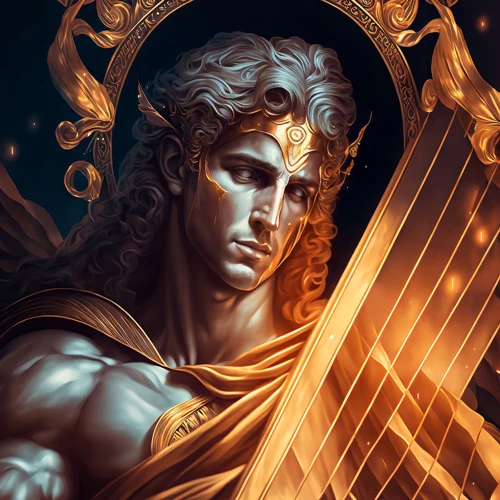
Exploring Greek Mythological Heroes
Greek mythology is replete with legendary heroes who exemplify courage, strength, and cunning. These heroes, often depicted in epic tales and heroic sagas, captured the imagination of the ancient Greeks and continue to inspire us today. Among the most renowned and celebrated heroes is Heracles, the demigod with unparalleled strength and bravery, who overcame daunting tasks in his Twelve Labors. Another notable hero is Perseus, who famously defeated the Gorgon Medusa and embarked on daring adventures. Theseus, the hero of Athens, is credited with slaying the Minotaur and navigating the treacherous labyrinth. Each hero has their own unique set of challenges, adversaries, and triumphs, showcasing the diverse and extraordinary qualities present in the ancient Greek mythological realm. Through the exploration of these heroic figures, we gain insight into the values, virtues, and ideals that were held dear within the ancient Greek civilization.
Heracles: The Greatest Hero of All
The magnificent figure of Heracles, also known as Hercules in Roman mythology, stands as one of the most revered and celebrated heroes in Greek mythology. Born to Zeus and Alcmene, Heracles possessed extraordinary strength and valor from birth. His journey as a hero was marked by a series of incredible trials and labors, which he undertook to atone for a tragic act committed in a fit of madness. Some of his renowned exploits include slaying the Nemean Lion, capturing the Golden Hind, and defeating the nine-headed Hydra. These feats showcased his unmatched strength and bravery, earning him a place among the pantheon of legendary figures. Heracles’ epic adventures took him to the far corners of the ancient world, where he encountered mythical creatures, aided by gods and goddesses, and faced formidable challenges. His story resonated deeply with the ancient Greeks, who admired his courage and admired his ability to overcome seemingly insurmountable obstacles. The image of Heracles, with his lion’s skin and mighty club, became an enduring symbol of heroism and divine prowess. His tales continue to inspire awe and admiration, and his name remains synonymous with heroism and strength. To learn more about the captivating world of Greek mythological creatures, click here.
Perseus: Slayer of Medusa
Perseus: Slayer of Medusa
Within the realm of Greek mythology, the tale of Perseus and his encounter with the fearsome Medusa stands as a legendary feat of heroism. Perseus, a demigod born to Zeus and the mortal Danaë, was tasked with the perilous mission of slaying Medusa, a monstrous creature with snakes for hair whose gaze turned any who looked upon her to stone. Equipped with a magical winged helmet, a mirrored shield, and a sword bestowed by the gods, Perseus embarked on his quest. Guided by the nymphs of the sea, he successfully located Medusa’s lair. Utilizing his shield as a reflection, he cleverly avoided direct eye contact with the dreaded Gorgon, and with a swift stroke, decapitated her. The severed head, even in death, retained its petrifying power, and Perseus later utilized it as a weapon against his enemies. This iconic myth of Perseus showcases bravery, resourcefulness, and divine intervention, highlighting the triumph of good over evil. It remains a testament to the enduring power and impact of Greek mythology in shaping the cultural and narrative landscape of the ancient world.
Theseus: The Hero of Athens
Theseus: The Hero of Athens
One of the most renowned heroes of Greek mythology is Theseus, the legendary figure associated with the city of Athens. Born to Aethra, daughter of King Pittheus of Troezen, and fathered by either King Aegeus or the god Poseidon, Theseus possessed exceptional strength, courage, and intelligence. His story is intertwined with the founding of Athens and his role in protecting the city from various threats.
One of Theseus’ most notable feats was his journey to Crete as part of the tribute paid by Athens to King Minos. Every few years, Athens was forced to send seven young men and seven young women to be sacrificed to the fearsome Minotaur, a creature with the body of a man and the head of a bull. Theseus volunteered as one of the sacrificial youths, determined to rid his city of this gruesome practice.
Upon his arrival in Crete, Theseus caught the attention of Princess Ariadne, who fell in love with him and agreed to help him slay the Minotaur. She provided him with a ball of thread, which he used to navigate the labyrinth and find his way back after defeating the fearsome creature. Theseus successfully killed the Minotaur, freeing Athens from its terrifying grip.
In addition to his heroic deeds, Theseus is also credited with unifying the disparate communities of Attica to form the city-state of Athens. He is often portrayed as a wise and just ruler, establishing democratic principles and fostering the growth of the city. Theseus’ leadership and courage solidified his reputation as the hero of Athens, and he is celebrated in countless myths, artwork, and literary works.
Despite his many triumphs, Theseus also faced personal challenges and tragic events. His journey home from Crete was marred by the death of his father, King Aegeus. Theseus forgot to change the color of his sails to indicate his success in killing the Minotaur, causing his grief-stricken father to throw himself into the sea, giving rise to the Aegean Sea’s name.
The legacy of Theseus as the hero of Athens is not limited to the realm of myth and legend. His story has had a profound impact on the cultural and historical identity of Athens. Throughout the city, monuments and landmarks pay homage to Theseus, highlighting his significance as a central figure in the city’s foundation and development. The Athenians revered Theseus and sought to emulate his virtues of bravery, determination, and justice.
Theseus, the hero of Athens, is a figure of great importance in Greek mythology and the history of the ancient city-state. His extraordinary feats, including slaying the Minotaur and establishing Athens as a unified city, continue to inspire and captivate audiences to this day. The symbolism and legacy of Theseus reflect the values and aspirations of the Athenian people, making him a revered figure in Greek mythology and a lasting symbol of heroism and leadership.
Influence of Greek Mythology
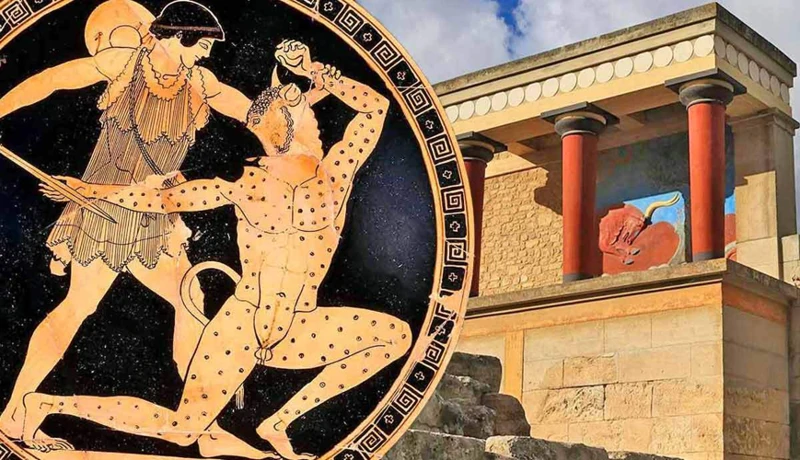
The Influence of Greek Mythology
The profound influence of Greek mythology can be seen in various aspects of human culture throughout history. From the arts to literature and even architecture, Greek mythology has left an indelible mark on the world. Artists drew inspiration from the heroic tales and captivating creatures of Greek mythology, creating masterpieces that captured the essence of these ancient stories. Epic poets like Homer immortalized the adventures of mythological heroes in their works, such as the Iliad and the Odyssey. Even today, references to Greek myths can be found in popular culture, movies, and literature. The legacy of Greek mythology extends beyond entertainment; it has shaped the way we understand and interpret the world. Its timeless themes of love, betrayal, and the human condition resonate with audiences across cultures and generations, reminding us of our shared human experience. Greek mythology continues to inspire and captivate, allowing us to explore the depths of our imagination and connect with our collective past.
Impact on Art, Literature, and Architecture
Impact on Art, Literature, and Architecture
Greek mythology has had a profound impact on various forms of artistic expression, literature, and architectural design throughout history. In art, the gods and heroes of Greek mythology provided endless inspiration for painters, sculptors, and mosaic artists. The depiction of mythological scenes, such as the Twelve Labors of Heracles or the birth of Aphrodite, became popular motifs in ancient Greek and Roman art. These artworks not only showcased the skill and creativity of the artists but also served as a means to honor the gods and immortalize the heroic deeds of mythological figures. The majestic temples, adorned with intricate sculptures and friezes, were dedicated to the gods and goddesses, setting the stage for religious rituals and ceremonies.
Greek mythology also left an indelible mark on the literary world. Epic poems like Homer’s “Iliad” and “Odyssey” and Hesiod’s “Theogony” brought to life the adventures of gods, heroes, and mythical creatures. These tales of love, war, and tragedy captured the imagination of generations, and their influence can be seen in works of literature throughout the ages. The themes, characters, and archetypal narratives of Greek mythology became a rich source of inspiration for playwrights, novelists, and poets in later centuries. The tragic plays of ancient Greek playwrights like Sophocles and Euripides drew heavily from mythological stories, exploring profound themes of human nature, fate, and morality.
The impact of Greek mythology is also visible in architectural designs. The grandeur of Greek temples, with their Doric, Ionic, and Corinthian columns, reflect the aesthetic beauty and proportion that were central to the ideals of Greek culture. These architectural elements, which were developed during the classical period, went on to inspire countless buildings and structures in the centuries that followed. The influence of Greek architectural styles can be seen in neoclassical buildings, such as the Parthenon-inspired structures in the United States, as well as in the design of government buildings, museums, and theaters worldwide.
The enduring impact of Greek mythology on art, literature, and architecture is a testament to its timeless appeal and the profound way in which it has shaped human creativity and expression. Through its captivating narratives, rich symbolism, and universal themes, Greek mythology continues to inspire and captivate audiences around the world.
Legacy in Modern Culture
Legacy in Modern Culture
The enduring legacy of Greek mythology in modern culture is undeniable, permeating various aspects of our lives. From literature and art to movies and video games, Greek mythology continues to inspire and captivate audiences around the world.
1. Literature:
– Countless works of literature draw inspiration from Greek mythology. Writers like William Shakespeare, John Milton, and James Joyce have incorporated mythical themes and characters into their works, adding depth and symbolism to their storytelling.
– Contemporary authors such as Rick Riordan, Madeline Miller, and Neil Gaiman have revived and reimagined Greek myths for a new generation of readers. These modern retellings bring ancient tales to life and introduce mythology to a wider audience.
2. Art and Architecture:
– Greek mythology has had a profound influence on the visual arts throughout history. Ancient Greek sculptures, such as the iconic statue of Zeus at Olympia and the Venus de Milo, have become iconic symbols of classical beauty and grace.
– Renaissance artists like Raphael and Michelangelo drew inspiration from Greek mythology in their paintings and sculptures, infusing their works with mythological themes and figures.
– Even in modern times, artists continue to incorporate elements of Greek mythology into their creations, whether it’s through classical-inspired sculptures or contemporary interpretations of mythical characters.
3. Film and Television:
– Greek mythology has provided a rich source of material for filmmakers and television producers. From Hollywood blockbusters like “Clash of the Titans” to critically acclaimed TV series like “Hercules: The Legendary Journeys,” these adaptations introduce Greek mythology to a wider audience and keep the ancient tales alive.
– The popularity of the Percy Jackson book series by Rick Riordan led to film adaptations that further brought Greek mythology into the mainstream. The success of these movies, as well as other mythological-themed films like “Troy” and “Immortals,” demonstrates the enduring appeal of Greek myths in the modern entertainment industry.
4. Popular Culture:
– Greek mythology is ubiquitous in popular culture, with references and allusions appearing in everything from advertising campaigns to sports team names. Companies like Nike (named after the Greek goddess of victory) and Amazon (named after the legendary race of female warriors) draw on the mythological heritage for branding.
– Greek mythological creatures like centaurs, sirens, and cyclopes have become iconic figures in fantasy literature, role-playing games, and online gaming. These creatures add a touch of mysticism and excitement to modern storytelling and gaming experiences.
The legacy of Greek mythology in modern culture is a testament to the enduring power and fascination of these ancient tales. They continue to inspire and captivate us, reminding us of the universal themes and timeless lessons embedded within their narratives.
Theories and Interpretations
Theories and Interpretations
The vast and complex realm of Greek mythology has sparked countless theories and interpretations throughout history. Scholars and enthusiasts have delved into the depths of these ancient tales, seeking to uncover hidden meanings, psychological symbolism, and connections to other mythologies. One prominent approach to understanding Greek mythology is through psychological interpretations. Psychologists like Sigmund Freud and Carl Jung believed that the myths reflected universal human experiences, with the gods and heroes representing various aspects of the human psyche. Another fascinating avenue of exploration is comparative mythology, which seeks to identify similarities and common themes across different cultures. This approach highlights the shared human experiences and archetypal motifs that transcend geographical and cultural boundaries. Additionally, some have explored the influence of Greek mythology on Christianity, noting parallels between certain myths and biblical stories. This intersection between mythology and religion raises intriguing questions about the cross-pollination of ideas and beliefs throughout history. The theories and interpretations surrounding Greek mythology provide fascinating insights into the human condition and the enduring power of these ancient tales.
Psychological and Symbolic Interpretations
Psychological and Symbolic Interpretations
Psychological and symbolic interpretations offer intriguing insights into the deeper meanings and significance of Greek mythology. Scholars and psychologists have long explored the psychological aspects of these ancient tales, uncovering connections to the human psyche and exploring the symbolism embedded within the myths. According to these interpretations, Greek mythology provides a symbolic language through which individuals can explore and understand their own inner conflicts, desires, and motivations.
One prominent psychological interpretation is the theory of archetypes put forth by renowned psychologist Carl Jung. Jung believed that certain themes and characters in Greek mythology represent universal archetypes that exist within the collective unconscious of humanity. These archetypes, such as the hero, the trickster, or the wise old man, resonate with deep-seated aspects of the human psyche. By analyzing the myths through the lens of archetypes, individuals can gain psychological insights into their own personalities and journeys of self-discovery.
In addition to psychological interpretations, symbolic interpretations shed light on the metaphorical meanings and messages conveyed through Greek mythology. The myths are rich with symbols that represent abstract concepts, societal values, and philosophical ideas. For example, the story of Prometheus, who stole fire from the gods to give it to humanity, can be seen as a symbol of human progress and the acquisition of knowledge. The tale of Pandora’s Box, which unleashed miseries onto the world, serves as a cautionary symbol of the consequences of curiosity and the dangers of unchecked desire.
These psychological and symbolic interpretations provide a deeper understanding of the enduring appeal and relevance of Greek mythology. Through exploring the psychological depths and symbolic language of the myths, individuals can engage with these ancient tales on a personal and introspective level. It reveals the universal truths and timeless wisdom contained within the stories, making them resonate with individuals across different cultures and times. Greek mythology, in its psychological and symbolic interpretations, continues to captivate and inspire, offering a profound exploration of the human experience.
Comparative Mythology: Similarities Across Cultures
Comparative Mythology: Similarities Across Cultures
In the realm of mythology, a fascinating field of study emerges when we explore the similarities that exist across various cultures. Comparative mythology seeks to uncover and analyze these shared motifs, themes, and archetypes, shedding light on the universal aspects of human storytelling. Through comparative analysis, scholars have discovered striking parallels between Greek mythology and the mythologies of other ancient civilizations. For example, the Greek god Zeus shares commonalities with the Roman god Jupiter and the Hindu god Indra, all representing the archetype of the sky father and ruler of the gods. Similarly, the myth of the Great Flood appears in various cultures, including Greek, Mesopotamian, and biblical narratives. By studying these resemblances, researchers gain insights into the shared human experiences, the collective unconscious, and the ways in which ancient civilizations tried to make sense of their world and their place within it. It also raises questions about cultural diffusion, cross-cultural contact, and the fundamental aspects of human nature that transcend time and geographic boundaries. Comparative mythology provides a valuable tool for understanding the common threads that connect diverse human cultures, highlighting our shared humanity and the enduring power of mythology to shape our worldview.
The Influence of Greek Mythology on Christianity
The Influence of Greek Mythology on Christianity
The influence of Greek mythology on Christianity is a fascinating topic that delves into the intricate connections between these two belief systems. While Christianity emerged as a distinct religion in the 1st century CE, it was influenced by the cultural and intellectual milieu of ancient Greece. Greek mythology, with its rich tapestry of gods, heroes, and epic tales, provided a framework and a language that Christians drew upon to express and interpret their own beliefs. One notable example is the concept of a divine Trinity, which has parallels in Greek mythology with the triadic nature of gods like Zeus, Poseidon, and Hades. Additionally, the idea of a hero sacrificing himself for the salvation of others can be seen in both the myth of Prometheus and the story of Jesus’ crucifixion. Greek mythology also influenced the depiction of heavenly beings and the concept of an afterlife. The depiction of angels with wings, for instance, draws upon the imagery of winged gods and goddesses in Greek mythology. The notion of an underworld or realm of the dead, such as Hades, influenced the concept of Hell in Christian theology. These various influences demonstrate the cultural exchange and adaptation that occurred between Greek mythology and Christianity, contributing to the development of Christian symbolism, iconography, and theological ideas.
Conclusion
Conclusion
In conclusion, the origins and development of Greek mythology offer a captivating glimpse into the ancient Greek civilization and its rich cultural heritage. We have delved into the birth of Greek mythology and its role in shaping the belief systems and values of the ancient Greeks. From the influences and borrowings of pre-Greek mythology to the emergence of the Minoan and Mycenaean cultures, we have seen how these early civilizations laid the foundation for the myths that would follow. The Olympian gods and goddesses, along with the heroic figures of Greek mythology, have become the epitome of power, virtue, and human struggles. The creation stories and the epic tales of the Trojan War have enthralled audiences for centuries, leaving an enduring impact on art, literature, and architecture. Furthermore, through psychological and symbolic interpretations, we have explored the deeper meanings and universal themes embedded within these ancient tales. Greek mythology’s influence extends far beyond the ancient world, leaving its mark on modern culture and even influencing other belief systems, such as Christianity. As we unravel the origins of Greek mythology, we uncover not only a fascinating historical perspective but also a timeless and enduring legacy that continues to captivate and inspire.
Frequently Asked Questions
What is Greek mythology?
Greek mythology refers to a collection of ancient stories and myths that originated in ancient Greece. These stories revolve around gods, goddesses, heroes, and mythical creatures, and they provide explanations for the origins of the world, natural phenomena, and the behavior of gods and humans.
Why is Greek mythology important?
Greek mythology holds immense importance as it offers insights into the beliefs, values, and culture of the ancient Greeks. It influenced various aspects of ancient Greek society, including art, literature, philosophy, and religion. Additionally, Greek myths continue to inspire and captivate people worldwide to this day.
Who were the major gods and goddesses in Greek mythology?
The major gods and goddesses of Greek mythology were known as the Olympians. They included Zeus, Hera, Poseidon, Demeter, Athena, Apollo, Artemis, Ares, Aphrodite, Hephaestus, Hermes, Dionysus, and Hestia. These gods ruled over different aspects of life and were worshipped throughout ancient Greece.
Who were the heroes in Greek mythology?
The heroes of Greek mythology were mortal individuals who displayed exceptional courage, strength, and intelligence. Some well-known heroes include Heracles (Hercules), Perseus, Theseus, Jason, and Odysseus. These heroes undertook epic journeys, battled fearsome monsters, and accomplished extraordinary feats.
What were the creation stories in Greek mythology?
In Greek mythology, there were various creation stories. The most famous is the Theogony, which describes the birth of the gods and the creation of the universe. Other creation stories include the Orphic tradition, which emphasized the primordial deity Phanes, and the poet Hesiod’s account of Chaos giving birth to the first divine beings.
Was the Trojan War a real event?
While the Trojan War is primarily known through mythology, scholars believe that it was likely based on historical events. The war was fought between the Greeks and the Trojans and was famously recounted in Homer’s epic poem, the Iliad. Archaeological evidence suggests that the city of Troy did exist and was destroyed around the time believed to be the Trojan War.
Which heroes played significant roles in the Trojan War?
Several heroes played significant roles in the Trojan War. The most renowned is Achilles, the greatest warrior of the Greeks, whose story is told in the Iliad. Other notable heroes include Hector of Troy, Ajax the Great, Odysseus, and Diomedes. These heroes displayed immense bravery and skill in the epic conflict.
How did Greek mythology influence art and literature?
Greek mythology had a profound influence on art and literature throughout history. In ancient times, Greek myths provided inspiration for countless sculptures, pottery, and frescoes. In literature, Greek myths are central to epic poems, such as the Iliad and the Odyssey, as well as countless plays, including those by renowned playwrights like Aeschylus, Sophocles, and Euripides.
What is the legacy of Greek mythology in modern culture?
The legacy of Greek mythology in modern culture is extensive. Elements of Greek mythology can be found in literature, films, music, and even language. Many English words, such as “narcissism” and “herculean,” have their origins in Greek mythology. Additionally, various modern works, like Rick Riordan’s “Percy Jackson” series, keep Greek mythology alive for new generations.
What are some popular theories and interpretations of Greek mythology?
There are several theories and interpretations surrounding Greek mythology. Some scholars approach these myths from a psychological and symbolic perspective, seeking to understand the deeper meanings and psychological aspects embedded within the stories. Comparative mythology explores the similarities between Greek mythology and other mythological traditions worldwide. Some have explored the influence of Greek mythology on Christianity, examining possible connections and parallels between the two belief systems.

